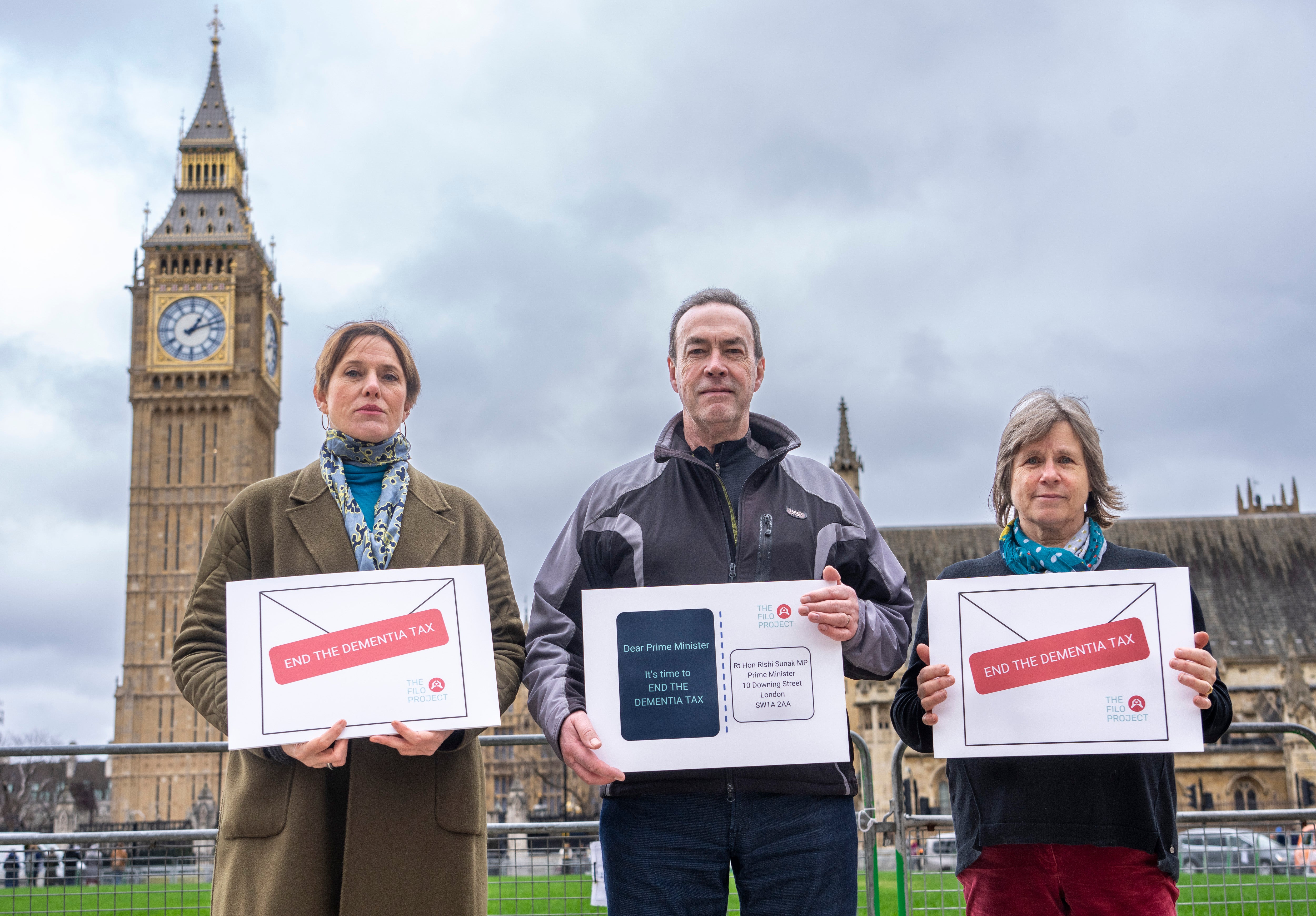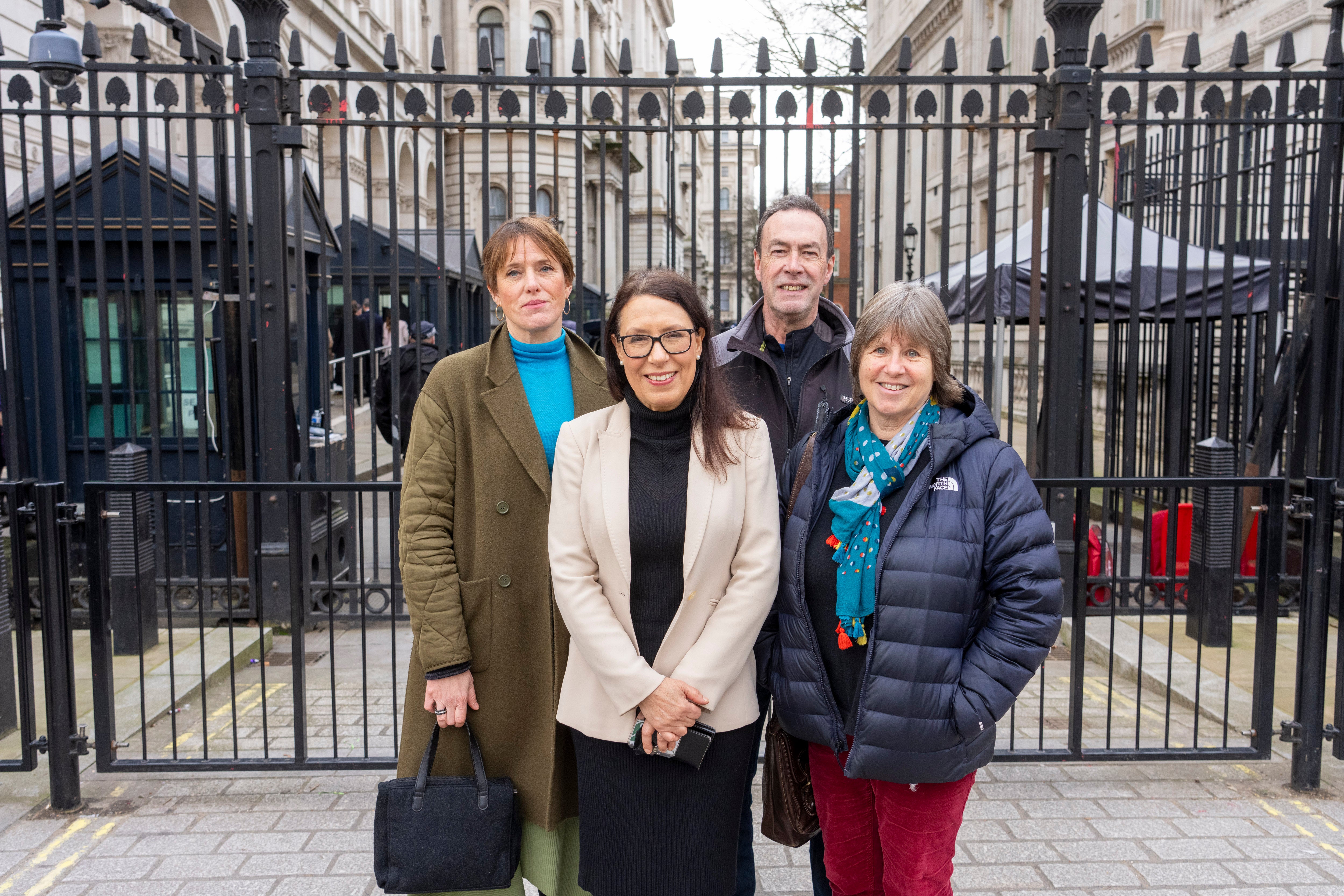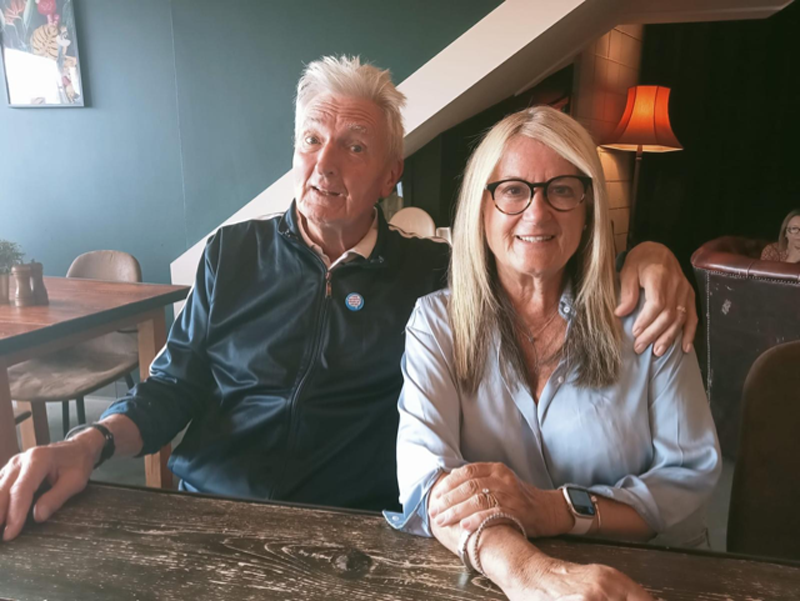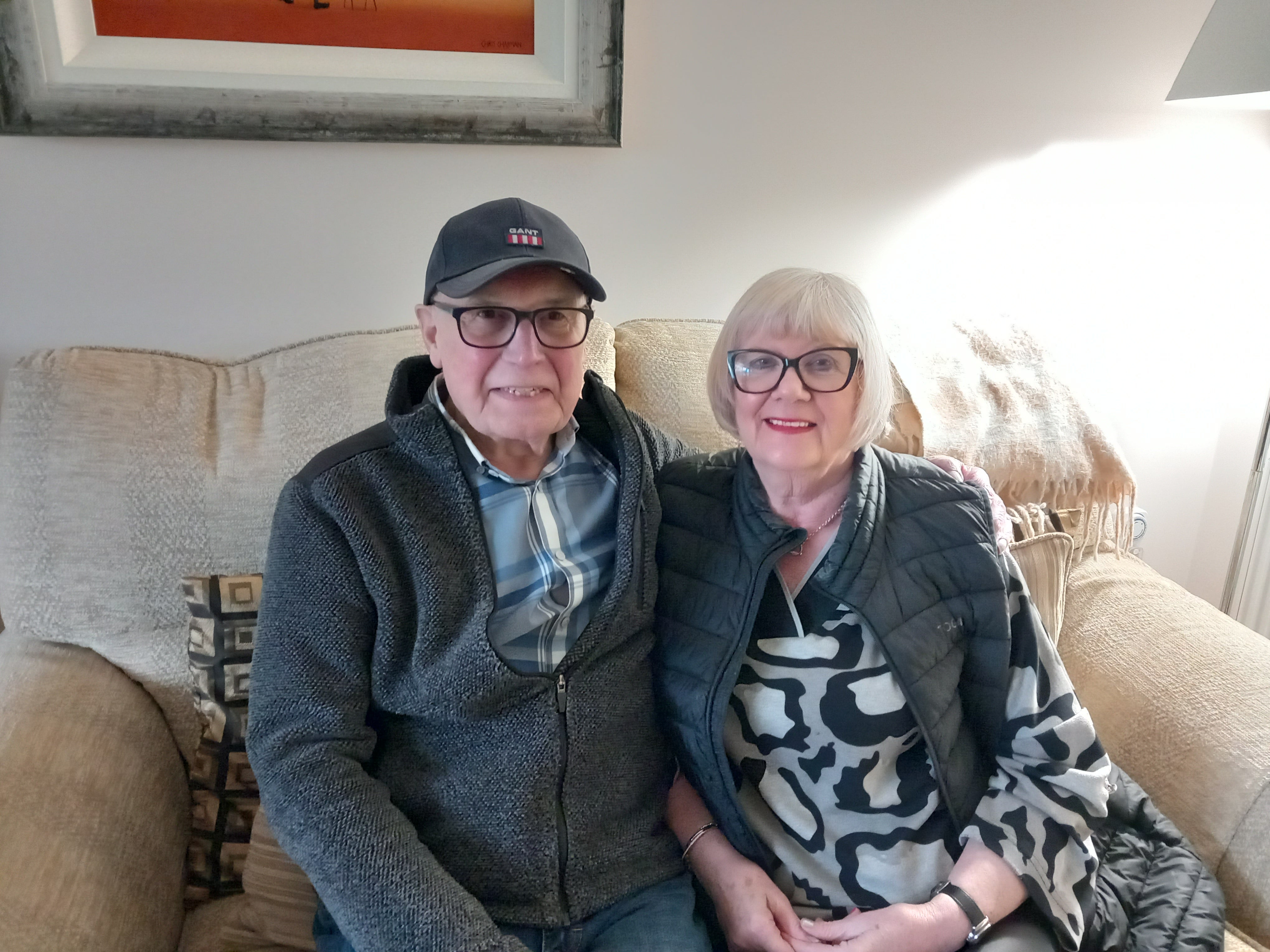‘Like kicking someone when they’re down’: Open letter calls for end to ‘dementia tax’
The tax brings a burden of almost £2,000 a year to families, which could stop them from being able to access the care they need

Campaigners have handed an open letter to Downing Street asking the government to abandon the so-called dementia tax.
The Filo Project, a not-for-profit organisation offering day care services for people with dementia, says that since they were set up in 2014, families supported by them have paid more than£700,000 in VAT.
Because they are a Community Interest Company (CIC) rather than a regulated business or charity, they must charge an extra 20 percent on their care services.
For individual families, the organisation believes this means a cost burden of almost £2,000 a year which could stop them from being able to access the care they need.
“The Government waives VAT for solar panels and caviar, yet essential dementia care provided by a social enterprise like us is considered a taxable luxury service,” Libby Price, co-founder and director of The Filo Project said.

“This is fundamentally unfair and means families can’t afford as much dementia care as they need,” Ms Price continued. “We’re here today at Downing Street calling for the Government to put this right in the upcoming Spring Budget by changing VAT rules so not-for-profit organisations like us who provide welfare support and care are exempt from having to charge VAT. Families would feel an immediate benefit.”
The campaign has garnered the support of over 1,000 people who have signed a petition and the likes of Totness MP Anthony Magnall and Exeter MP Ben Bradshaw.
At the moment, people have to fund the complete cost of their care, unless they have assets of less than £23,250.
Families using the social enterprise have backed the tax cut and said the charge is “like kicking someone when they’re down”.
Georgie, who lives in Bridgwater with her husband Barrie who comes to a Filo Project twice every week, said: “The fact that not-for-profit organisations like The Filo Project have to pay VAT is unfair. The Government are making money from people with dementia and it’s like kicking someone when they’re down.”
“For some families, not paying VAT could mean the difference between going or not going to a Filo Project host.”

Kathleen Craven, 71, from Rawtenstall, Lancashire, cares for her husband Bill, 77, who was diagnosed with advanced Alzheimer’s disease and fronto-temporal dementia in August 2023.
After struggling to find support for the first months of Bill’s diagnosis, Kathleen came across the Filo Project and said attending the day care sessions has helped him maintain his independence.
Former maths teacher Bill attends a day care session once a week, but Kathleen believes he would benefit if he could attend more - which could in part be paid for by the money she could be saving on VAT.
“We pay £97 a day so if VAT was knocked off we could pay for a whole extra day a month,” she told The Independent. “I know they’re not a charity but they’re helping the community and I don’t think it’s right that we have to pay tax on this care. Bill worked and paid tax his whole life, but now he needs this support he needs to spend all his money on it.
“It’s just not fair and you shouldn’t be punished for having dementia and needing care.”

Kathleen, who is also a retired teacher, said the care Bill receives at his daycare sessions is vital for his health and also allows her some rest as his carer.
“Bill struggles to recall memories and to get his words out but attending a Filo group really helps with this as being in the home environment feels more normal and not like an institution,” She said. “With Filo he can feel like part of a family group and do different, stimulating activities.”
She added: “Without the day care he’s just at home and I can’t keep him stimulated all the time. It’s his independence at stake and he still needs to maintain it.
“I’m trying to help him live well and meet other people. I don’t want him to go into a care home and that’s why CIC’s are so important and shouldn’t be affected by tax.”
Research from the Alzheimer’s Society estimates that there are around 900,000 people with dementia in the UK and that 70 per cent of people in care homes have dementia or severe memory problems.
However, a 2011 report from the society revealed that people with dementia face the highest costs of care of any group and have to pay the most towards their care.
Furthermore, figures from healthcare information provider Laing Buisson, the average cost of residential care for older people was between £590 and £648 a week. However, this increased to an average of £631 to £689 a week for people with dementia.
The treasury has been approached for comment.
Join our commenting forum
Join thought-provoking conversations, follow other Independent readers and see their replies
Comments
Bookmark popover
Removed from bookmarks